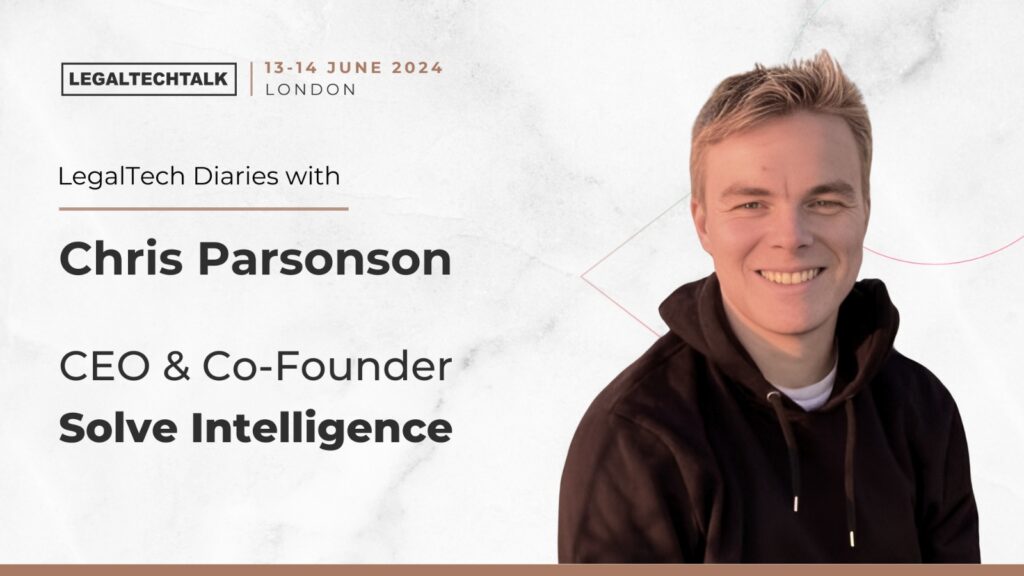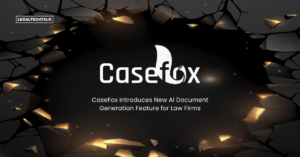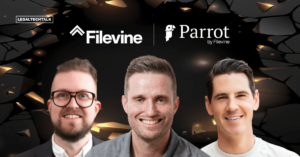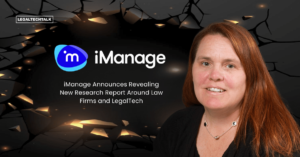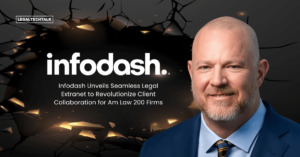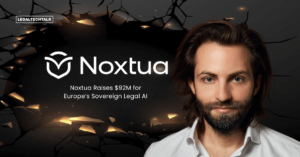In this insightful interview, Chris Parsonson, CEO and Co-Founder of Solve Intelligence, explores the challenges facing patent attorneys and how AI is poised to transform the intellectual property landscape. Chris highlights the mounting pressures of cost, time, and quality constraints that attorneys grapple with, fueled by factors like fixed-cost pricing models, client impatience, and rigorous quality standards.
Chris envisions AI alleviating manual tasks, enabling attorneys to focus on strategic advisory roles and maximise client value. Moreover, Chris foresees AI driving industry growth by increasing efficiency, maximise IP value for clients, and enhancing portfolio monetisation opportunities.
Merlin Beyts: What’s the biggest challenge for patent attorneys right now?
Chris Parsonson: Patent attorneys are being squeezed on three dimensions: cost, time, and quality.
Over the last decade, the industry has moved away from a billable hours business model towards fixed-cost pricing, leveraging patent drafting as a loss-leader. Big tech companies using outside counsel for drafting often insist on this, and use their collective pricing power to push these fixed costs lower. Given the complexity of drafting patent applications, attorneys are having to trade off quality for time spent drafting to stay within the budget constraints of their clients and ensure reasonable margins and throughputs for their businesses.
Moreover, clients are impatient. Inventors do not want to fill out burdensome invention disclosure forms or have lengthy back-and-forths with attorneys before releasing their technology into the World. A slow process is not good for anyone; it results in inventors being less inclined to submit as many disclosures for patenting and, therefore, less business for attorneys and less value capture for tech companies. Patent attorneys need to work fast to satisfy their clients.
Furthermore, despite the above time and cost constraints, attorneys are liable for their output and need to ensure each patent drafted by their firm is of the highest quality. This includes the need to adhere to the unique stylistic drafting preferences of the firm, the client, the jurisdiction being filed in, and the field of invention being covered. Additionally, in-house teams and stakeholders do not just want patent attorneys to ensure high-quality drafts, but also to think strategically about what should be patented given their company’s competitive landscape, how broad a set of claims should be, and what the expected return on investment is from each hour spent on patenting.
As well as the above, there are the classic pain points of drafting figures, conducting prior art searches, translating disclosures and applications to different languages, re-drafting sets of claims and specifications for new jurisdictions, and more. All of this sucks up attorney time and often requires outsourcing, further constraining firm margins.
Merlin Beyts: What does the role of the patent attorney of the future look like when combined with AI?
Chris Parsonson: Many attorneys are already using AI to assist with the manual tasks involved with drafting patent applications. This rapid adoption is unsurprising – patent attorneys want the aforementioned challenges around cost, time, and quality constraints to be addressed, and large language models are now sufficiently sophisticated to help.
As time goes on, the role of the attorney will focus less on extracting basic technological information from inventors, laboriously drafting extensive supportive specifications, labeling figures with reference numerals, and so on. Instead, they will do what their clients actually want them to do, which is to provide strategic advice, catered to each client’s unique business objectives, on what things should be patented, how to maximize return on investment from IP, how the patent and its claims should be drafted, and other issues related to strategy.
AI will be a powerful tool for patent attorneys both in drafting and in synthesizing information to aid with strategy, but the key insights and decisions will ultimately come from the attorney. The AI is just an assistant; the attorney will remain in the driving seat. With more time freed up for strategic thinking, the role of patent attorneys will become increasingly important and valuable to their clients.
Merlin Beyts: How will the Intellectual Property space change over the next 24 months?
Chris Parsonson: We are seeing attorneys get 60-90% efficiency improvements in their workflows. These are industry redefining numbers that are only improving; the technology is undergoing substantial advances on a weekly basis.
In the short to medium term, we will see firms who have adopted and learned to leverage AI out-compete those who have been slow. This will not just be by offering more competitive pricing. There will be a window where firms using AI will be providing such a fast, high-quality service focusing on client satisfaction and strategic advice that some AI-enabled firms will be able to charge a premium for their service.
In the longer term, the size of the IP industry will increase substantially.
AI is helping inventors be more prolific, which will inevitably lead to more inventions and patent applications. Moreover, the long back-and-forth inventors traditionally dread will be alleviated by the attorney using AI to help analyze, enhance, and build out invention disclosures automatically, which will also lead to more patents.
Furthermore, the efficiency attorneys will gain from AI will increase their bandwidth to take on more business, not only allowing more applications to be drafted and reviewed, but also meaning more firms will be able to cater to inventors who are currently priced out of the IP market.
The greater focus of attorneys on strategy will enable clients to increase the return on investment they get from IP, which will consequently increase client incentives to invest more heavily in IP. Moreover, AI will help teams monetize their patent portfolios via licensing, further increasing IP investment incentives.
It is a great time to be in the IP space!
Chris will also be speaking at LegalTechTalk 2024 on 13-14th June 2024 at InterContinental O2 in London where over 2,500 in-house and law firm leaders, legaltech startups, and investors will join us for 2 full days of insights and networking. See more here: https://www.legaltech-talk.com/

